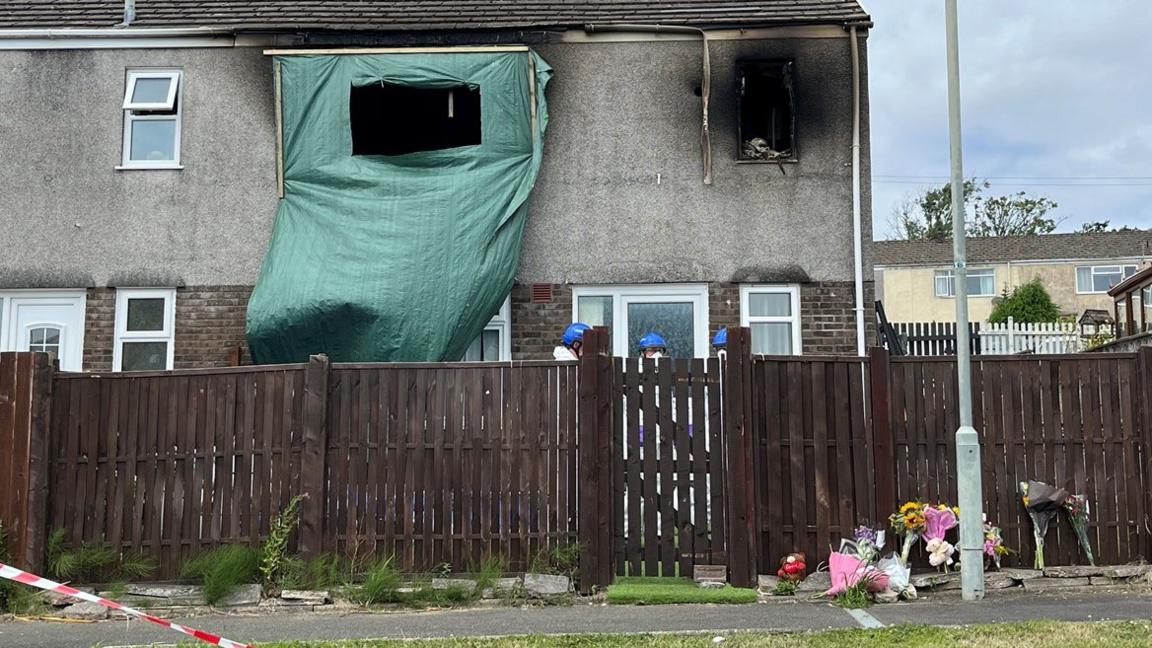'Electrical work' done at home where boy and dad died
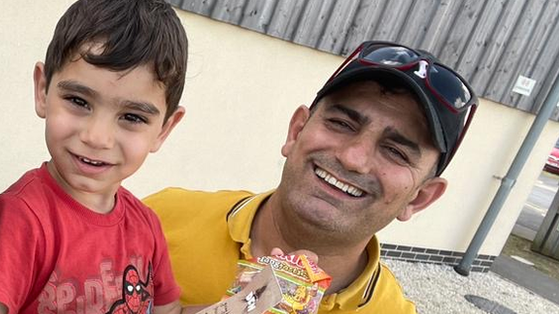
Muhammad Esmael and his father died in the fire
- Published
Electrical alterations had been made in a house where a three-year-old boy and his father died in a fire, an inquest has heard.
Muhammad Esmael was found in a bedroom at the house in West Cross, Swansea, at about 13:30 on 1 July last year.
His father Naemat Lawa Esmael, 51, was found lying on the front lawn and died in hospital two days later.
Muhammad's mother, Sharmeen Ahmed, told the inquest at Swansea Guildhall that her husband had made home improvements in their council-owned house, including some electrical work.
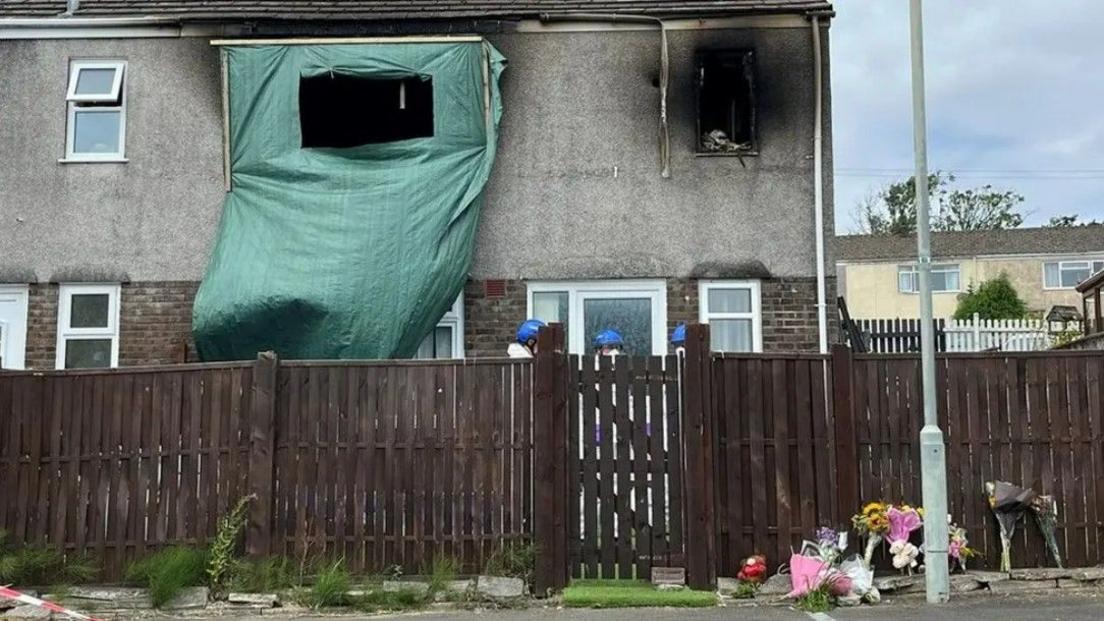
An inquest in Swansea heard Muhammad Esmael's father had carried out some electrical work at the property
Investigators found an extension lead had been wired into a socket in the room where the fire started, where a storage unit contained items including a games console and a TV, the inquest was told.
Jason Woodman of Mid and West Wales Fire and Rescue Service told the inquest that, "based on the balance of probabilities", the fire had started in that area.
He said there were no other potential source of fire found in the room.
Mr Woodman said there was heat and fire damage under the surface the TV and console were on, adding that “charring” was seen underneath the area, although there wasn’t photographic evidence.
He said the smoke detector may not have sounded because the door of the bedroom was closed.
A photo of the remnants of a TV and games console unit shown in the inquest revealed extensive damage.
Forensic scientist Iain Peck told the inquest he found no evidence of a fault with any of the equipment, including extension cables, a TV and a games console, which had been taken from the first-floor bedroom.
Assistant coroner Kirsten Heaven told the inquest it was “unfortunate” that there wasn’t more detailed evidence, photography and forensic analysis of the area.
Muhammad died from exposure to the flames and things burning around him, the inquest was told.
'The best dad'
Speaking through an interpreter, Ms Ahmed told the inquest she wanted to know the exact cause of the fire so nobody else would have to go through what she had.
“It would have been much easier for me to lose my life there and then, than go through all this sorrow now,” she said.
She told the inquest that Muhammad and his father had a very loving relationship, adding that "he was the best dad".
Mrs Ahmed said her husband and Muhammad had been upstairs preparing to go to the mosque on the afternoon when the blaze broke out, but when she came upstairs she saw flames in a mirror reflection.
She said Mr Esmael had come out of the shower and opened the door to a blaze in the front bedroom.
She told the coroner she could hear “some noise” from the fire alarm but that it was low-pitched and not continuous.
Ms Ahmed suffered from smoke inhalation following the blaze, along with her teenage daughter.
'Exposed electrical wire'
An electrical expert with South Wales Police, Barry Kelly, who assessed the electrical aftermath following a fire, told the inquest that items had been removed from the property before he arrived.
He said there was exposed electrical wiring in the living room, which could have caused a serious electric shock if touched, and that there were alterations in other areas of the house too.
In the room where the fire started, he said that there were two cut cables coming out of the wall, where a socket would have been, and that electrical items had gone.
He said he could not subsequently offer an opinion on a possible cause of the fire.
The inquest also heard two statements from firefighters Leighton Brown and Gareth Davies who said the stairs banister, ceiling and the whole of the landing was “covered in smoke and fire” on their arrival.
Mr Brown said he also heard “a few beeps” on the fire alarm.
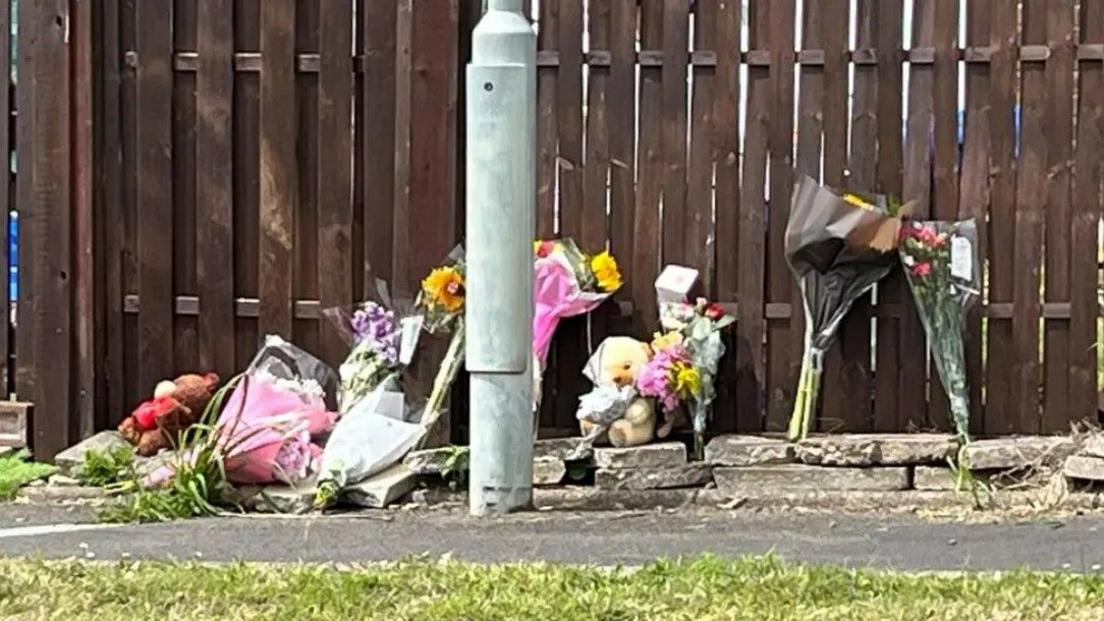
Floral tributes and teddy bears were left outside the house following the fire
Siobhan Cooze from Swansea council said the family moved into the house in 2021, adding that smoke alarms were installed there in 2020.
She said electrical works were not permitted in council properties and that this was made clear to tenants “at several points” in the tenancy sign-in.
Swansea council electrician Thomas Mainwaring said the local authority’s homes were fitted with hard-wired smoke alarms and were connected to a lighting circuit.
He said the alarms were all connected, so if one sounded, they all sounded, and a smoke alarm might bleep if the main power supply had been cut off and the battery power was low.
The inquest continues.
Related topics
- Published4 July 2023
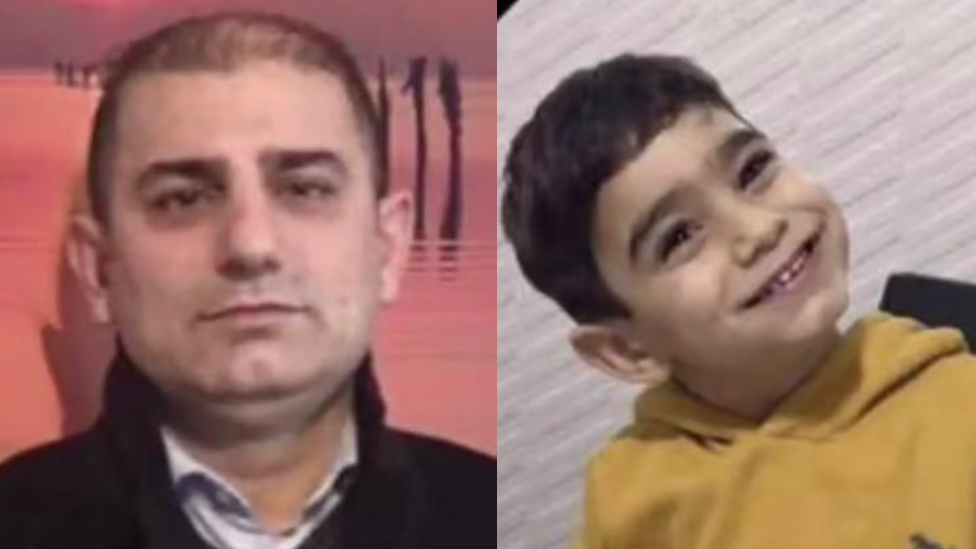
- Published6 July 2023

- Published3 July 2023
